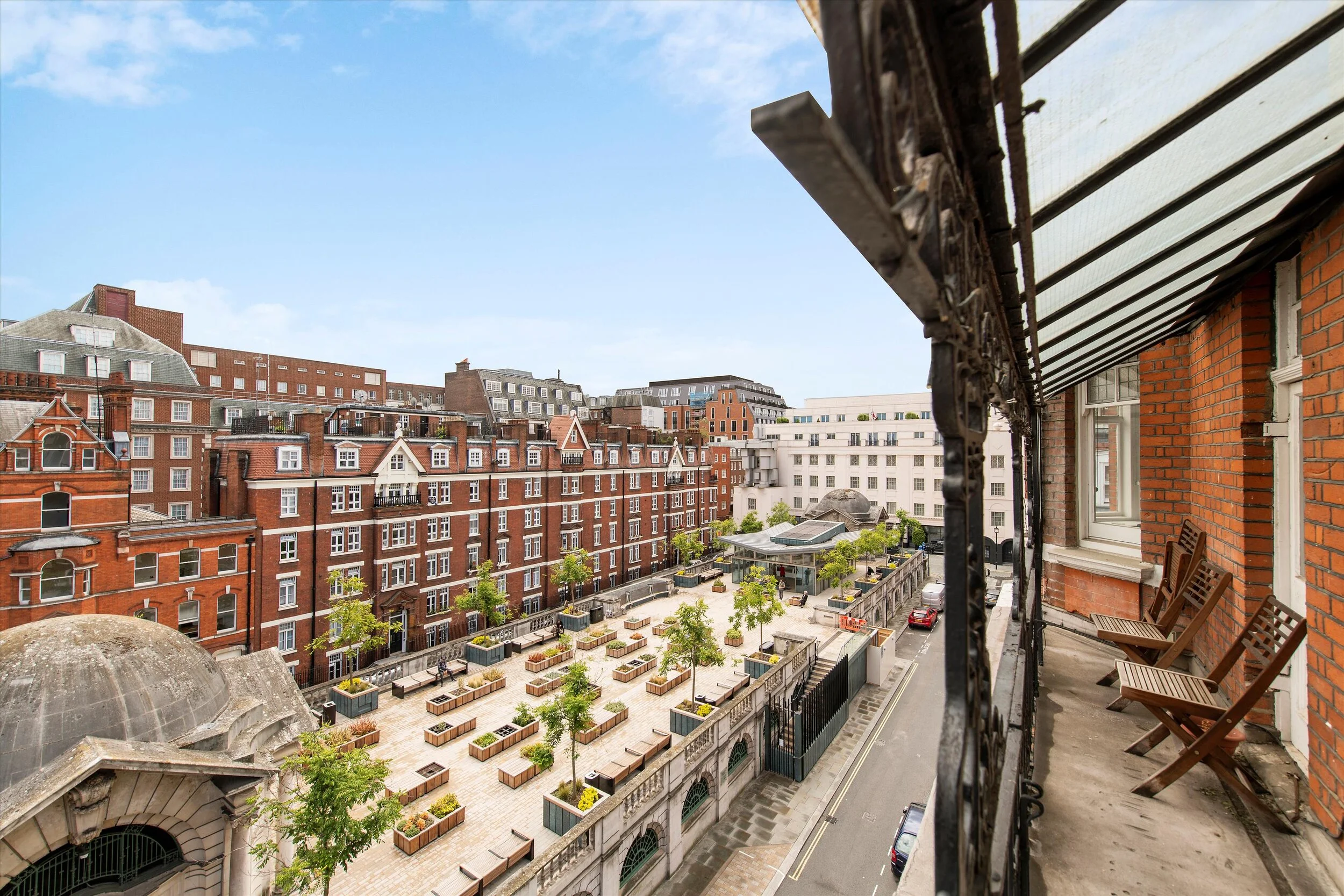10 BASICS YOU NEED TO KNOW BEFORE BUYING A PROPERTY IN LONDON, BY JEMIMAH BARNETT
If you are thinking about buying a property in London from overseas, fear not. Jemimah Barnett, Property Advisor and Buyer, tells us the do’s and don’ts of buying property in London. She is on hand to help you every step of the way with your new investment, from the initial idea and negotiation process, right through to the final completion.
1.) I want to buy a property in London from overseas, what are the basics that I need to know before I begin?
Great question. London is a daunting market for purchasers because it’s very fragmented, it moves quickly, and much of the city’s best stock changes hands ‘off market’ – out of public view. So, that’s issue number 1: Access. If you’re an overseas buyer considering making a purchase in London, you’re going to need a well-connected agent, and preferably an independent EBA (exclusive buyer agent); that’s the sort of agent that works with buyers only, and doesn’t play both sides.
Round trip transaction costs are moderate for Europe, and the success and smooth-running of the buying process is greatly affected by your choice of solicitor (the lawyer who will represent you and undertake the contract work for your purchase). People are shocked to find out that around a third of all transactions fall through, and this is often at the stage where the legal work is underway. If you don’t know who to choose for your conveyancing, take advice from your buyer agent – that’s a key hiring decision that you don’t want to get wrong.
You’ll need to clarify your budget before you begin any search, and try to give your agent as much information as possible about what you’re trying to achieve. That way they can show you only things that are a good fit. In order to hire your agent, and later make a purchase, you’ll need to produce various documents to prove your identity, residence, and source of funding. Ask for a list of these proofs to be sent over to you via email, so you can get them together ahead of time. Things like certified documents can take a little while to organize, so it pays to do that first, so you can progress with your search (the fun part) sooner.
2.) What services do you offer for overseas buyers?
I am a full service Property Advisor & Buyer, so I do as much or as little as my clients need. I advise on location and property type, professionals to work with, and how to approach your search. I then carry out that search: sourcing the right property for the client’s needs, and undertaking due diligence to ensure the client is making a sound acquisition.
Once we have identified the target property, I negotiate on my buyer’s behalf to secure them the best possible price, and terms. When we reach agreement, I work alongside your chosen solicitor to manage the transaction through to completion, keeping things on track and ensuring a smooth close.
After the purchase I’m able to assist in a myriad of ways, depending on the individual needs of the client; everything from arranging refurbishment works, to organising rental property management, and everything in between. Common requests include overseeing interior styling, and recommending & managing service providers. Other requests are things like assistance sourcing household staff, or managing the transit of furniture and artwork. Whatever support is needed, it’s likely I’ll be able to help.
3.) Can any nationality buy a property in the UK?
Unlike some countries that afford purchasing rights to residents only, the UK is quite liberal in this respect. Any nationality can buy a property in the UK, and around half of my clients are non-resident buyers.
4.) As a non-resident can I get a mortgage? Can you offer advice and assistance with this?
I generally hate answers that begin with ‘it depends’, but in the case of mortgages it definitely does! What you’re buying, and where you’re buying it will affect the number of lenders willing to lend, as well as the rates and size of the loans available to you. Most nationalities are eligible for investment loans, although there are fewer banks offering them these days. Overseas buyers should be prepared to put down larger deposits than local buyers (often 40% +) and will also be required to provide proof of income/funds.
It’s also worth considering an offshore mortgage – foreign buyers often find it easier to secure loans in their own country, as they may already have established assets they can loan against, as well as having longstanding relationships with their existing banks.
The best thing to do is seek advice from a specialist who is ‘whole of market’. Whilst many overseas buyers already have their own financial advisors in place, for those that don’t, I will put them in touch with a suitable broker or advisor who can give them a clear overview of their options, from an independent perspective. And don’t forget to consider the tax implications of a UK purchase, especially if you intend to derive income from the property (such as with a rental investment).
5.) What types of property can you source in London?
Virtually any type of residential property. Most overseas buyers fall into 2 categories: they are either purchasing to live in (a home/vacation home), or purchasing for investment.
Home buyers often seek to be in (or near) London’s so called ‘Golden Triangle’, the wedge of prime real estate to the south and west of Hyde Park. The ‘prize’ purchases are still those magnificent period properties nestled in the prime neighbourhoods. These properties remain highly sought after, mostly changing hands off-market.
Investors are a bit different. Those seeking yield will pursue different styles and locations than those chasing capital growth (or merely ‘land banking’). Investors might also be looking for development opportunities and larger scale projects, which is whole other kettle of fish. Rental apartment units are still very popular with overseas buyers; low maintenance, and income producing. If you plan to go this route, choose sites with great management, and push for the best location (and site positioning) you can afford.
London has seen a huge amount of development over the past decade, with much more in the pipeline, and that has certainly attracted a great deal of inward investment flows. Whilst a lot of what has been built is not stock I’d recommend to my buyers, there are some truly standout projects within the new build space. There’s a tremendous amount of opportunity in London - the challenge is sorting the good from the bad amongst all that noise.
6.) Is there a minimum spend for your clients?
I work with a broad range of buyer budgets, starting from around £2m. Right now I have a range of active buyer searches. Some of these include: an investor seeking 1 or 2 prime yield producing units - budget 3m pounds; a family who’d like to develop a Freehold building into apartments for their 4 kids – budget £13m; and a family looking for a prestige London home – budget £45-60m.
I give all my clients the same amount of dedication and attention, irrespective of budget. I also never take on two conflicting searches – if I’m approached to conduct a search that is too similar to that of a present client, I will not take on that business - it could result in a conflict of interest.
The bottom line is this: my clients trust me to guide them as they make some of the most important financial decisions of their lives. I take that seriously, and I consider it my responsibility to make every transaction an unequivocal win for my clients.
7.) How do I view the properties if I am based overseas? Will you help me set up a viewing schedule?
Yes, that’s certainly a part of what I do. For each client search I look across the entire market, through hundreds, (or in some cases thousands) of possible options. I narrow those down to ‘potentials’ which I then personally view. At this stage many more properties are ruled out. I conduct due diligence on those that make the cut, and start to make assessments regarding the strengths, weaknesses and pricing accuracy of each. I will usually show between 4 and 8 options to the client on viewing day, depending on the search, and they know they’re viewing just the best of the best.
I normally send the client a schedule, with descriptions and floor plans so they can get a sense of what we will be looking at and think over any key questions ahead of time.
Occasionally something comes up that is a truly amazing opportunity, and I want my client to be in there to see it first. In London, really special opportunities do come up (generally off market) but they move fast; in that case my buyer may arrange to fly in asap just for that viewing.
Some of my clients (especially investors) never actually come to London. They’re trusting me to present them with the best options, help them make the right selection, and negotiate the best possible deal for them. For these clients I prepare all the information, images, and my critique and send that over email. We can also consult over the phone, and video conference.
Modern technology has made this so much easier – for overseas clients I can even give them a live video tour if needed. Brave new world indeed.
8.) Can you offer advice on property management services to overseas buyers who rent out their property?
Of course. Whilst I exclusively handle buyer agency, I am transacting property and interacting with other agents and service providers on a daily basis. You could say that buyer agents are uniquely placed to advise on such matters – we know exactly who is good and who isn’t, and there’s no conflict of interest here – we don’t handle management, we simply advise you on who would be best for the task, based on real world results.
Purchasing an investment property is just the first step; what comes next is crucial too. Proper management of your investments is imperative. I have a lot of buyers who wish to rent out their London properties, and I match them with a selection of the best agents in that area, so they can be assured of great returns, quality tenant vetting, and attentive management – the trifecta of rental success.
9.) I want to buy as an investment, what hurdles will I face with this?
Investment purchasers often go for new build apartments, as they can be easy in lot of respects, and maintenance is likely to be minimal. Having said that, I tend to advise caution around new builds. A lot of the stock coming to market is overvalued, and will make for a poor long term investment.
There are fewer than 1 in 50 new schemes in London that I’d be willing to put forward to my clients, and even then, I’d only be considering a couple of units on each site that I felt were the best units.
Be extra critical of new build stock; think seriously about location (which always trumps styling), and about the ongoing site management. Amenities like pools and spas are becoming more common, but how will they be maintained, by whom, and at what what cost to owners?
If the goal is to make a sound investment, consider an older property… A well renovated older property can be no more work than a new build. London has some beautiful period properties, and many have value-adding features such a high ceilings, better room proportions and larger windows – features buyers and renters seek out
One of the easiest traps that foreign buyers fall into is misunderstanding the different roles in a transaction. Recently I was chatting to a family unhappy with their previous acquisition - a central London apartment on a new scheme. They had found the apartment difficult to rent (red flag), and the building management to be expensive and poor quality (very common). They regretted their purchase, and felt angry that their agent had given them poor advice… It turns out that the agent they were referring to was not a buyer agent, he was an “investment sales agent”. I asked how much they had paid him, and they said that luckily they hadn’t had to pay him, because he was being paid by the developer. No wonder he gave them poor advice – he was working for the other side!
The person who pays you is the one you work for. Protect yourself from this sort of outcome by seeking out independent guidance. Bad advice can be very expensive.
10.) How easy it is to buy a family holiday home in London?
Logistically, not so difficult. The search process can be a bit of a messy nightmare, but luckily your agent does that part for you. The toughest challenge for families is actually clarifying the parameters of the search: which area would best suit your budget and lifestyle, and how does your family like live?
Once you’ve got a clear target area it’s good to really think critically about the sort of home that will give you the lifestyle you want; if you like to spend a lot of time together, it’s unlikely that you’ll want a home with a separate kitchen – open plan would be best. If you have small children you may want to rule out houses (many floors, lots of stairs), and focus on lateral apartments that are easy and practical to move around in.
Sometimes it’s tough for people to articulate exactly what they’re looking for until they start actually seeing some properties. In that case, I like to cast a wider net initially and show clients some real contrast in the first viewings. Seeing a few very different areas or home styles can often do wonders for your decision making process.
Access and good counsel are the main things home buyers need to have on hand, so working with an agent/advisor you like and trust is pretty important. Go for someone who you think understands what you’re looking for.
As much of the good stock will be ‘off market’, hire an independent advisor with good cross-market relationships, so you’ll be able to access everything that is available. London has some truly beautiful properties, and many people aspire to own a home here. It certainly is a rewarding job helping families and individuals to find their London home.
Get in touch:
Mobile: +44 (0) 7766 977 649 | Office: +44 (0) 207 867 3944
Email: office@jemimahbarnett.com | Web: www.jemimahbarnett.com








